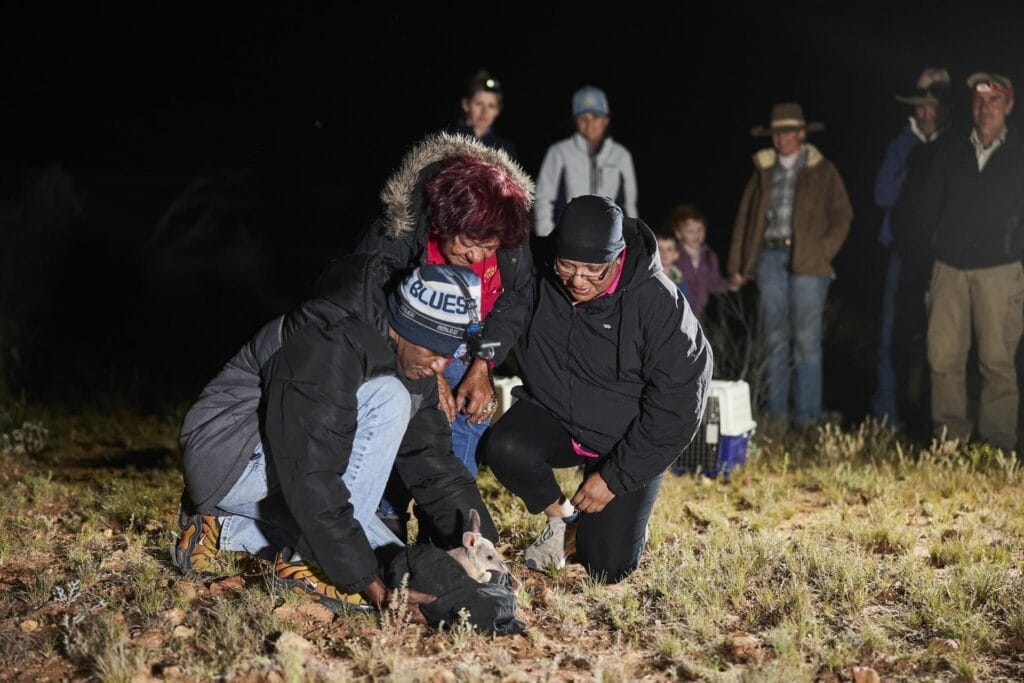As a part of an impactful partnership between NSW Nationwide Parks and Wildlife Service and the decade-long Wild Deserts venture, two extra ‘extinct’ mammal species have now been reintroduced to Sturt Nationwide Park in far western NSW.
The Wild Deserts venture not too long ago launched 20 Western quolls and 20 Burrowing bettongs to Sturt Nationwide Park, following a breeding program at Taronga Western Plains Zoo and the Arid Restoration venture in South Australia. This brings the entire to 13 species of mammals beforehand listed as ‘extinct’ in NSW now reintroduced into this area, together with the Golden bandicoot, bilby, and Brush-tailed bettong.
The Western quoll and Burrowing bettong species disappeared from NSW a couple of century in the past. Many species have confronted native extinction on this area because of the affect of feral cats and foxes, with feral cats alone killing as much as 1.5 billion native animals per yr.
Which conservation efforts are combatting the affect of feral cats?
The creation of a big feral cat-free space inside Mallee Cliffs Nationwide Park and two feral-free areas inside Sturt Nationwide Park has made the reintroduction of domestically extinct species doable.
These feral-free areas may also help develop the populations of those species, nevertheless the additional problem is making ready species for survival past the protected areas. The subsequent step is introducing weak species to a ‘Wild Training Zone’, which has a decrease variety of feral cats than the broader panorama.
‘It has been extremely thrilling to launch 20 Western quolls and 100 bilbies into the Wild Coaching Zone space’, says Principal Wild Deserts Ecologist Dr Rebecca West.
‘Seeing their tracks within the purple sand for the primary time in round a century and radio monitoring them every day to examine their survival has been a thrill, particularly as thus far, they’re surviving effectively within the coaching zone, the place we’re decreasing feral cat numbers to low numbers.
‘The analysis at Sturt Nationwide Park is crucial as a result of it is going to assist determine whether or not some threatened mammal species can survive with a low density of cats. This may also help inform a long-term plan for the return of species in open landscapes’, Dr West mentioned.
To date, earlier reintroductions have been profitable, with wild populations greater than tripling for species such because the bilby, Golden bandicoot and Brush-tailed bettong.
With a purpose to fight the affect of feral cats on Australia’s wildlife, the Australian Authorities not too long ago awarded a $2.1 million grant beneath its new $11.4 million Menace Improvements program for the event and trial of superior AI wildlife digicam monitoring and Felixers, a not too long ago developed feral cat grooming lure. A few of this expertise shall be rolled out throughout Sturt Nationwide Park.
Pictures by DCCEEW


